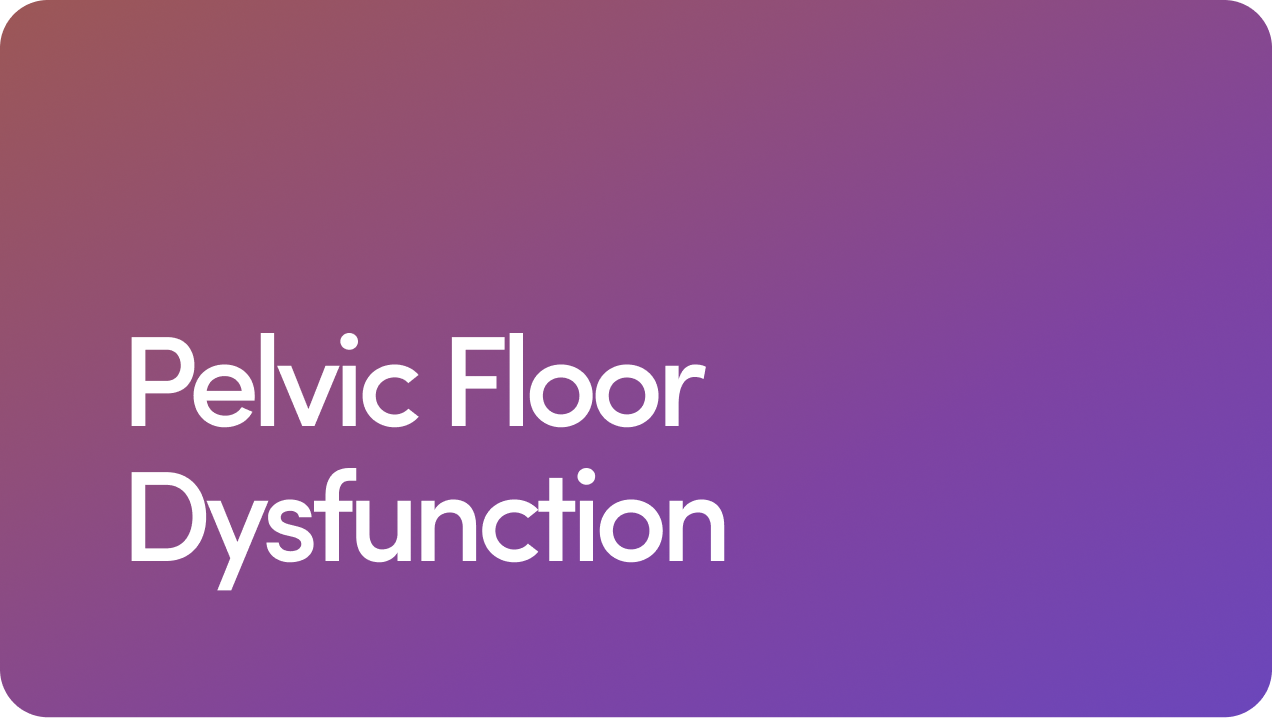Content
Enjoy sex like you used to
How Many Times a Day Do Men Get Erections?

How many erections per day are men supposed to have? Like a certain children’s story about porridge, we suspect that if you’re reading this, you’re curious about what’s too much, what’s too little and what number of erections per day is just right.
That’s not even considering the question of how long an erection should last — a totally different topic, albeit an important one when you think about sexual intercourse and sexual activity in general.
A certain number of erections per day hasn’t been associated with any metric of erectile or sexual health that we’ve been able to find. But for the average erection-having guy worried about a medical condition like erectile dysfunction (ED) or premature ejaculation, trying to get a sense of how “normal” your day-to-day function is makes perfect sense.
We’re not sure there’s much comfort in meeting a specific number. In fact, we’d like to point you in the direction of other measures of sexual health that might be more beneficial in assessing your own. But we also did some digging to find out more about this curious mechanical metric of masculinity.
So, how many times a day does a man get hard, on average? And how many many erections per day is considered normal?
Let’s dive into the question of erections per day, including why it matters, what’s a normal erection number and what you might want to pay attention to instead.
Content
How often do guys get boners? There don’t seem to be any good estimates for the number of erections you should be experiencing on average throughout the day, unfortunately.
We’ve seen numerous sites point to a number of “11 erections per day.” This was initially attributed to the NHS (National Health Service) of the United Kingdom, but that source seems to have been removed, and another original claim doesn’t appear anywhere else.
The number is almost certainly one or more, and we’re pretty sure 100 isn’t realistically an average, either. But it could be a handful, a dozen or something in between — the research just isn’t really there.
One thing is for sure: it’s normal to get erections with some regularity. According to the Cleveland Clinic, it’s normal for men and boys of just about every age (and even before birth) to get erections.
Men even get erections in their sleep. You probably know this about nocturnal erections and nocturnal emissions — you may have even stumbled upon one when waking up one morning.
The technical term for erections alongside your rapid eye movement cycle is nocturnal penile tumescence, though most non-nerds refer to it as “morning wood.”
How many erections per day is not enough? If you’re getting zero erections throughout the day, you may be worried. But the reality is that even if you’re not pitching a tent at random times, it doesn’t necessarily mean you’re dysfunctional.
For the record, erectile dysfunction is an inability to achieve or maintain an erection in intimate situations. That can be with yourself or a partner, but generally speaking, ED only occurs when you want to be hard, but aren’t.
Random erections throughout the day? Not the best metric for determining whether you’re experiencing ED.
Typically, ED is caused by a physiological issue, like diabetes or cardiovascular disease, hormonal imbalance, obesity or hypertension. Psychological factors can also create or increase risk factors for erectile dysfunction and sexual dysfunction, generally, but there are often multiple factors at play.
The symptoms of ED aren’t measured in days without an erection — you don’t need a chalkboard on your wall to keep track. Instead, it’s best to consider whether an inability to get or maintain an erection during intimacy has happened more than once (in a pattern) over a period of six months.
If you’ve had trouble getting it up when you want to on more than one occasion in the last six months, it might suggest you’re experiencing ED.
Beyond how many erections per day the average man has, some guys may have trouble getting many (or any) at all. Luckily, erectile dysfunction is very treatable these days, and there are a few ways to approach it.
You can even pursue some approaches without the help of a healthcare professional. For instance, if your current health and lifestyle would be considered unhealthy, significant day-to-day changes can clear up ED in some circumstances.
Excessive drinking, smoking, illicit drug use, a sedentary lifestyle and poor sleep hygiene are all contributing factors to ED. As such, protecting your sleep, lungs, liver and heart from your own choices won’t just help you to live longer — it may also help your erections to thrive.
But self-control is about the extent of what you can fix without professional intervention. Luckily, the effort of talking to someone about the symptoms of ED can be well worth the initial awkwardness.
Medication is one of the most effective ways to manage ED — specifically, medications like sildenafil (which you may know as Viagra) and tadalafil (which you may also know as Cialis).
These prescription medications treat erectile dysfunction by inhibiting the action of something called phosphodiesterase-5, which can restrict blood flow to the blood vessels of your penis and interrupt the process of becoming erect.
PDE-5 inhibitors like sildenafil and tadalafil inhibit this enzyme, and in doing so, make it easier to get an erection.
Depending on your needs, you might be better suited with one or the other of these medications. Sildenafil is taken on an as-needed basis, while tadalafil can be taken either as needed or on a daily basis.
But psychological causes of ED — low self-esteem, performance anxiety and body image issues — may benefit more from therapy as a method of intervention. A sex therapist can help you build confidence and face your fears of intimacy, which could be behind your ED when no other physical explanations exist.
The Big Picture on Erections Per Day
Before you go off to look up "how many times day guys get hard", this answer can vary thanks to a number of factors. The good news is that if you’re able to function in sexual situations, you don’t have to worry about median household erections, erections per hour or any other dumb metric of masculine energy to consider yourself healthy, sexually fit and ready to dive into intimacy.
But what happens if that’s not the case?
If you’re concerned about your erections per day or your erections in general, it may be time to talk to a healthcare professional.
A healthcare professional can help you determine the cause of any reductions in erectile frequency. They can also offer treatment options for resolving these issues.
Potential treatments may include medication, lifestyle changes or therapy — but it’ll depend on your individual circumstances, which aren’t something we can speak to from here.
Want to talk with someone now? Consider our sexual health resources.
We offer a fast and easy way to speak with a healthcare professional about your sexual function concerns without the drive to a doctor’s office or the awkward face-to-face discussion about what’s not working the way you want it to.
If your performance has been bugging you lately, reach out. One of the easiest ways to be above average is to seek treatment and get back in the game.
4 Sources
- Sooriyamoorthy T, Leslie SW. Erectile Dysfunction. [Updated 2022 Nov 28]. In: StatPearls [Internet]. Treasure Island (FL): StatPearls Publishing; 2022 Jan-. Available from: https://www.ncbi.nlm.nih.gov/books/NBK562253/
- Team, U. and K. (2021, August 26). Why do men get morning erections? Cleveland Clinic. Retrieved January 16, 2023, from https://health.clevelandclinic.org/men-get-morning-erections-5-answers-questions/
- Smith BP, Babos M. Sildenafil. [Updated 2022 Sep 19]. In: StatPearls [Internet]. Treasure Island (FL): StatPearls Publishing; 2022 Jan-. Available from: https://www.ncbi.nlm.nih.gov/books/NBK558978/
- Dhaliwal A, Gupta M. PDE5 Inhibitors. [Updated 2022 May 20]. In: StatPearls [Internet]. Treasure Island (FL): StatPearls Publishing; 2022 Jan-. Available from: https://www.ncbi.nlm.nih.gov/books/NBK549843/
Editorial Standards
Hims & Hers has strict sourcing guidelines to ensure our content is accurate and current. We rely on peer-reviewed studies, academic research institutions, and medical associations. We strive to use primary sources and refrain from using tertiary references. See a mistake? Let us know at [email protected]!
This article is for informational purposes only and does not constitute medical advice. The information contained herein is not a substitute for and should never be relied upon for professional medical advice. Always talk to your doctor about the risks and benefits of any treatment. Learn more about our editorial standards here.

Kelly Brown MD, MBA
Dr. Kelly Brown is a board certified Urologist and fellowship trained in Andrology. She is an accomplished men’s health expert with a robust background in healthcare innovation, clinical medicine, and academic research. Dr. Brown was previously Medical Director of a male fertility startup where she lead strategy and design of their digital health platform, an innovative education and telehealth model for delivering expert male fertility care.
She completed her undergraduate studies at University of North Carolina at Chapel Hill (go Heels!) with a Bachelor of Science in Radiologic Science and a Minor in Chemistry. She took a position at University of California Los Angeles as a radiologic technologist in the department of Interventional Cardiology, further solidifying her passion for medicine. She also pursued the unique opportunity to lead departmental design and operational development at the Ronald Reagan UCLA Medical Center, sparking her passion for the business of healthcare.
Dr. Brown then went on to obtain her doctorate in medicine from the prestigious Northwestern University - Feinberg School of Medicine and Masters in Business Administration from Northwestern University - Kellogg School of Management, with a concentration in Healthcare Management. During her surgical residency in Urology at University of California San Francisco, she utilized her research year to focus on innovations in telemedicine and then served as chief resident with significant contributions to clinical quality improvement. Dr. Brown then completed her Andrology Fellowship at Medical College of Wisconsin, furthering her expertise in male fertility, microsurgery, and sexual function.
Her dedication to caring for patients with compassion, understanding, as well as a unique ability to make guys instantly comfortable discussing anything from sex to sperm makes her a renowned clinician. In addition, her passion for innovation in healthcare combined with her business acumen makes her a formidable leader in the field of men’s health.
Dr. Brown is an avid adventurer; summiting Mount Kilimanjaro in Tanzania (twice!) and hiking the incredible Torres del Paine Trek in Patagonia, Chile. She deeply appreciates new challenges and diverse cultures on her travels. She lives in Denver with her husband, two children, and beloved Bernese Mountain Dog. You can find Dr. Brown on LinkedIn for more information.
Education & Training
Andrology Fellowship, Medical College of Wisconsin
Urology Residency, University of California San Francisco
M.D. Northwestern University Feinberg School of MedicineB.S. in Radiologic Science, Chemistry Minor, University of North Carolina at Chapel Hill
Research
Published as Kelly Walker
Cowan, B, Walker, K., Rodgers, K., Agyemang, J. (2023). Hormonal Management Improves Semen Analysis Parameters in Men with Abnormal Concentration, Motility, and/or Morphology. Fertility and Sterility, Volume 118, Issue 5, e4. https://www.sciencedirect.com/journal/fertility-and-sterility/vol/120/issue/1/suppl/S
Walker, K., Gogoj, A., Honig, S., Sandlow, J. (2021). What’s New in Male Contraception? AUA Update Series, Volume 40. https://auau.auanet.org/content/update-series-2021-lesson-27-what%E2%80%99s-new-male-contraception
Walker, K., Shindel, A. (2019). AUA Erectile Dysfunction Guideline. AUA Update Series, Volume 38. https://auau.auanet.org/content/course-307
Walker, K., Ramstein, J., & Smith, J. (2019). Regret Regarding Fertility Preservation Decisions Among Male Cancer Patients. The Journal of Urology, 201(Supplement 4), e680-e681. https://www.auajournals.org/doi/10.1097/01.JU.0000556300.18991.8e
Walker, K., & Smith, J. (2019). Feasibility Study of Video Telehealth Clinic Visits in Urology. The Journal of Urology, 201(Supplement 4), e545-e545. https://www.auajournals.org/doi/10.1097/01.JU.0000556071.60611.37
Related Articles
Related Conditions
 Erectile Dysfunction
Erectile Dysfunction
 Premature Ejaculation
Premature Ejaculation
 Low Testosterone
Low Testosterone
 Retrograde Ejaculation
Retrograde Ejaculation
 Pelvic Floor Dysfunction
Pelvic Floor Dysfunction
 Anorgasmia
Anorgasmia